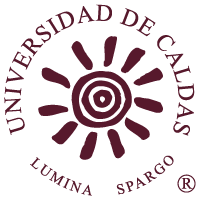| dc.contributor.author | Sierra, Jorge | spa |
| dc.date.accessioned | 2015-07-01 00:00:00 | |
| dc.date.accessioned | 2021-02-04T14:55:56Z | |
| dc.date.available | 2015-07-01 00:00:00 | |
| dc.date.available | 2021-02-04T14:55:56Z | |
| dc.date.issued | 2015-07-01 | |
| dc.identifier.issn | 0124-6127 | |
| dc.identifier.uri | https://doi.org/10.17151/difil.2015.16.27.6. | |
| dc.identifier.uri | https://repositorio.ucaldas.edu.co/handle/ucaldas/15642 | |
| dc.description.abstract | El objetivo de este artículo es responder a la cuestión de si los dos argumentos evolutivos desacreditadores (AED) que, según mi interpretación, pueden ser desarrollados a partir de la memética (el argumento del contagio y el argumento de la creencia en la creencia) logran socavar a la racionalidad internalista y externalista del teísmo. Los AED contra la racionalidad de la creencia religiosa intentan demostrar que si tal creencia es causada por procesos que no rastrean la verdad, entonces dicha creencia es injustificada o incluso falsa. Sostendré que el argumento del contagio no es válido por la debilidad teórica de la memética, mientras que el argumento de la creencia en la creencia puede ser parcialmente válido dado que es lógicamente independiente del enfoque memético. Finalmente, examinaré una posible refutación de tal argumento que se apoya en la tesis de que la creencia proposicional en Dios no es decisiva para la xplicación adaptativa del complejo sistema de la religión. Mostraré, brevemente, que esto no salva al teísmo de otro AED basado en la naturaleza adaptativa de la religión. | spa |
| dc.description.abstract | The aim of this paper is to answer the question of whether the two evolutionary debunking arguments (EDA) which, in my interpretation, can be developed from memetics (the argument of contagion and the argument of belief in belief) successfully undermine both the internalist and the externalist rationality of theism. The EDA against the rationality of religious belief try to prove that if such belief is caused by processes that do not track the truth, then this belief is unwarranted or even false. I will argue that the contagion argument is not valid due to the theoretical weakness of memetics, while the argument of belief in belief may be partly valid, since it is logically independent of the memetic approach. Finally, I will examine a possible refutation of that argument based on the thesis that the propositional belief in God is not decisive for the adaptive explanation of the complex system of religion. I will show, briefly, that this does not save theism from another EDA based on the adaptive nature of religion. | eng |
| dc.format.mimetype | application/pdf | spa |
| dc.language.iso | spa | spa |
| dc.publisher | Universidad de Caldas | spa |
| dc.rights | Derechos de autor 2015 Discusiones Filosóficas | spa |
| dc.rights.uri | https://creativecommons.org/licenses/by/4.0/ | spa |
| dc.source | https://revistasojs.ucaldas.edu.co/index.php/discusionesfilosoficas/article/view/2972 | spa |
| dc.subject | evolutionary debunking arguments | eng |
| dc.subject | theism | eng |
| dc.subject | atheism | eng |
| dc.subject | Dennett | eng |
| dc.subject | rationality | eng |
| dc.subject | argumentos evolutivos desacreditadores | spa |
| dc.subject | teísmo | spa |
| dc.subject | ateísmo | spa |
| dc.subject | Dennett | spa |
| dc.subject | racionalidad | spa |
| dc.title | ¿Son válidos los argumentos evolutivos desacreditadores de la memética contra la racionalidad del teísmo? | spa |
| dc.type | Sección Artículos | spa |
| dc.type | Artículo de revista | spa |
| dc.type | Journal Article | eng |
| dc.identifier.doi | 10.17151/difil.2015.16.27.6. | |
| dc.identifier.eissn | 2462-9596 | |
| dc.relation.citationendpage | 103 | |
| dc.relation.citationissue | 27 | spa |
| dc.relation.citationstartpage | 87 | |
| dc.relation.citationvolume | 16 | spa |
| dc.relation.ispartofjournal | Discusiones Filosóficas | spa |
| dc.relation.references | Atran, S. In Gods We Trust. New York: Oxford University Press, 2002. Print. | spa |
| dc.relation.references | Barrett, J. “Cognitive Science, Religion and Theology.” Murray, M. and Jeffrey Schloss. The Believing Primate. New York: Oxford University Press, 2009. Print. | spa |
| dc.relation.references | Boyer, P. Religion Explained. New York: Basic Books, 2001. Print. | spa |
| dc.relation.references | Darwin, C. El origen del hombre. Barcelona: Crítica, 1994. Impreso. | spa |
| dc.relation.references | Dawkins, R. El espejismo de Dios. Madrid: Espasa Calpe, 2007. Impreso. | spa |
| dc.relation.references | Dennett, D. Romper el hechizo: la religión como fenómeno natural. Buenos Aires: Katz, 2007. Impreso. | spa |
| dc.relation.references | Leech, D. and A. Visala. “The Cognitive Science of Religion: A Modified Theistic Response.” Religious Studies. Sept. 2011: 301-316. Print. | spa |
| dc.relation.references | McGrath, A. Dawkin’s God. Genes, Memes and the Meaning of Life. Malden: Blackwell, 2007. Print. | spa |
| dc.relation.references | Mercier, A. “Religión y autoengaño.” Blackford, R. and Udo Schüklenk. 50 voces incrédulas: por qué somos ateos. Madrid: Biblioteca Buridán, 2013. Impreso. | spa |
| dc.relation.references | Plantinga, A. Where the Conflict Really Lies: Science, Religion, and Naturalism. London: Oxford University Press, 2011. Print. | spa |
| dc.relation.references | Sosis, R. and J. Kiper. “Religion is More Than Belief: What Evolutionary Theories of Religion Tell Us about Religious Commitments.” Bergmann, M. and Peter Kain. Challenges to Moral and Religious Belief Disagreement and Evolution. London: Oxford University Press, 2014. Print. | spa |
| dc.relation.references | Trivers, R. The folly of fools. New York: Basic Books, 2011. Print. | spa |
| dc.relation.references | Wilson, D.S. Darwins Catedral: Evolution, Religion and the Nature of Society. Chicago: The University Chicago Press, 2002. Print. | spa |
| dc.rights.accessrights | info:eu-repo/semantics/openAccess | spa |
| dc.title.translated | Are the evolutionary debunking arguments of memetics againts the rationality of theism valid? | eng |
| dc.type.coar | http://purl.org/coar/resource_type/c_6501 | spa |
| dc.type.content | Text | spa |
| dc.type.driver | info:eu-repo/semantics/article | spa |
| dc.type.version | info:eu-repo/semantics/publishedVersion | spa |
| dc.relation.citationedition | Núm. 27 , Año 2015 : Julio - Diciembre | spa |
| dc.relation.bitstream | https://revistasojs.ucaldas.edu.co/index.php/discusionesfilosoficas/article/download/2972/2747 | |
| dc.type.coarversion | http://purl.org/coar/version/c_970fb48d4fbd8a85 | spa |
| dc.rights.coar | http://purl.org/coar/access_right/c_abf2 | spa |





